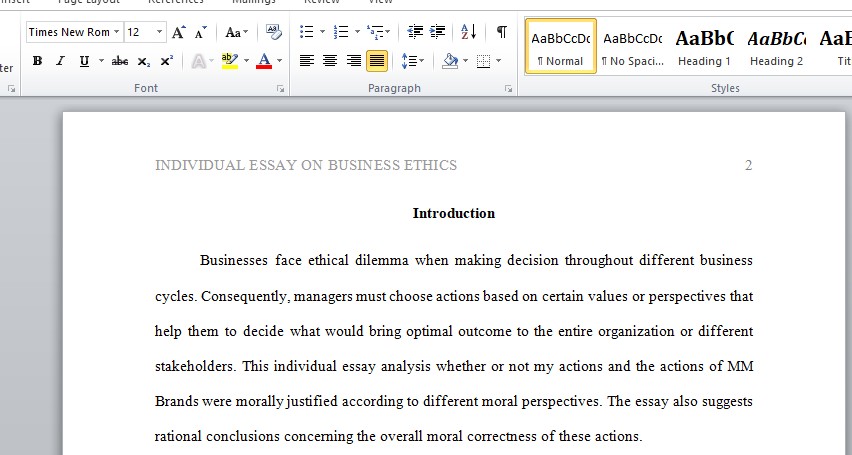Levi’s plant closings that occurred throughout the U.S. and Canada during the 1990s
The following question on business ethics is based on the Levi’s plant closings that occurred throughout the U.S. and Canada during the 1990s, with the last plant closing in North America in 2003. Levi’s is just one example, but there have been many other US firms, which have outsourced operations to Asia.This would be a good self-learning opportunity to learn theories of ethics for any Business Ethics course.
The Essay Question on “Business Ethics”:You are a new Senior Manager at the Bakersfield plant owned by MM Brands, a major multi-national manufacturer of clothing. Bakersfield is a small city of 40,000 people. The factory employs 400 people, most of whom earn low wages because of the low-skill work. At your initial meeting with the plant workers, you promise that you will do everything possible to protect jobs at the plant, since everyone knows that there is pressure to outsource low-skill production work. Eight months later, upper management tells you that the plant must be closed because MM Brands cannot stay in business unless it outsources production work. Competitors have been able to cut their prices by using outsourcing and are gaining against MM Brands. You will be offered a new job at the main MM Brands offices, but everyone else will lose their jobs. Due to your family responsibilities, you decide to accept the new job and you close the plant without fighting for the additional severance pay packages that the workers want. At the new factory in China, workers have 12-hour days and no health care benefits, but most are better off than they were as subsistence farmers. One year after the plant closing, one-third of the previous employees report that they were challenged to improve themselves for the first time in their lives and that they have found better, higher paying work. Another third are employed in similar low-skill, low-pay jobs, and the last third remain unemployed. Evaluate whether or not your own actions and the actions of MM Brands were morally justified according to the theoretical provisions of the following moral perspectives: utilitarian, Kantian, Nietzschean, and Pragmatic. State the main theoretical provisions of each system, how these apply to the specific actions, and the reasoning used to decide whether or not these actions were morally correct according to each system. Next, using the theory of moral pluralism (the theory that each of the main moral systems may be partially true), reach a considered, rational, conclusion about the overall moral correctness of these actions. Finally, suggest ways that the actions might have been altered to ensure a better moral outcome. Based on reasoning derived from a pluralistic approach, suggest several moral rules that should guide the practice of outsourcing in general.You may find it helpful to research the moral theories in conjunction with the key words “business ethics.
Answer preview:

Words: 839
